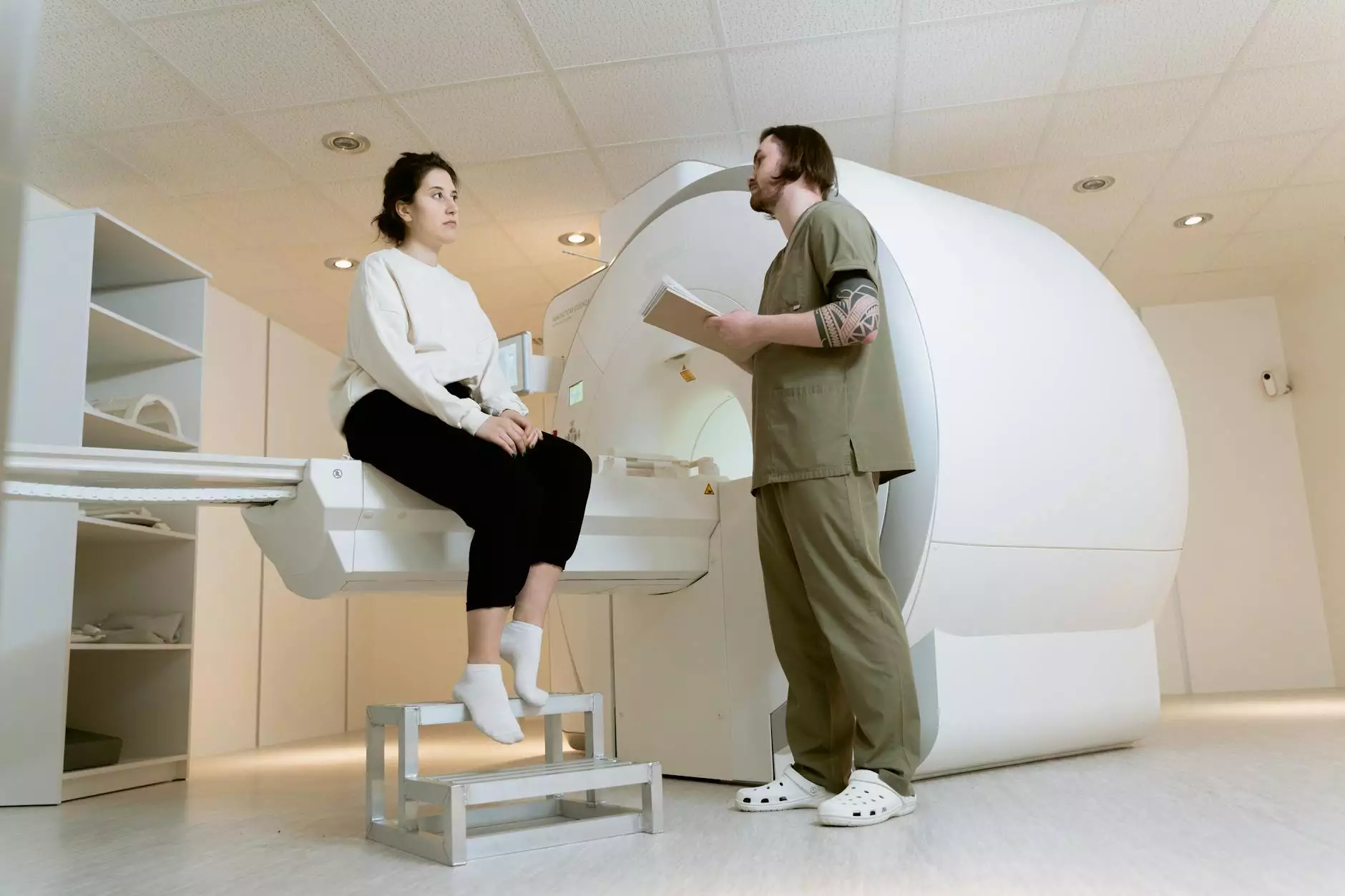Resting Myocardial Perfusion Scan - Health Library

Introduction
Welcome to Furstenberg Michael Dr's Health Library, where we provide comprehensive information about various medical procedures and services. In this section, we will delve into the Resting Myocardial Perfusion Scan, a crucial diagnostic tool for assessing heart function and detecting potential cardiac issues.
What is a Resting Myocardial Perfusion Scan?
A Resting Myocardial Perfusion Scan, also known as a Myocardial Perfusion Imaging (MPI) or a Nuclear Stress Test, is a non-invasive procedure that evaluates blood flow to the heart muscle. It offers valuable insights into the overall heart function and is commonly used to diagnose heart conditions, including coronary artery disease and myocardial infarction.
How Does a Resting Myocardial Perfusion Scan Work?
During a Resting Myocardial Perfusion Scan, a small amount of a radioactive tracer is intravenously injected into the patient's bloodstream. This tracer actively binds to the heart muscle and emits tiny amounts of radiation. A specialized gamma camera then captures images of the heart from multiple angles as it beats, allowing healthcare professionals to assess blood flow patterns and identify potential abnormalities or areas with reduced perfusion.
The Resting Myocardial Perfusion Scan can be performed in combination with a stress test, which involves introducing certain drugs to mimic the effects of physical exertion on the heart. By comparing the images obtained during rest and stress, doctors can determine if there are any significant differences in blood flow and detect coronary artery disease more accurately.
Benefits of a Resting Myocardial Perfusion Scan
The Resting Myocardial Perfusion Scan offers several benefits, including:
- Accurate Diagnosis: By visualizing blood flow to the heart muscle, this scan can help accurately diagnose conditions like coronary artery disease and assess the extent of damage to the heart.
- Early Detection: The scan can detect potential heart problems before symptoms appear, allowing for early intervention and prevention of further complications.
- Personalized Treatment: The detailed information obtained from the scan helps healthcare professionals develop an individualized treatment plan that suits the patient's specific needs.
- Guidance for Intervention: For patients who require invasive procedures like angioplasty or coronary bypass surgery, the scan results can guide the intervention and ensure optimal outcomes.
Risks and Limitations
While a Resting Myocardial Perfusion Scan is generally safe, there are a few considerations worth noting:
- Radiation Exposure: The scan involves exposure to a small amount of radiation. However, the benefits of a proper diagnosis usually outweigh the risks posed by this minimal radiation.
- Allergic Reactions: In rare cases, individuals may have an allergic reaction to the injected tracer. Patients are advised to inform healthcare providers of any known allergies or past adverse reactions to similar substances.
- Pregnancy and Breastfeeding: The scan is not recommended for pregnant or breastfeeding women due to potential risks to the fetus or breastfed infant. It's crucial to inform healthcare providers if you are pregnant or breastfeeding.
- Limitations of Detection: The scan may not always detect small or minimal blockages in the heart vessels. In cases where symptoms persist, additional tests may be required to obtain more accurate results.
Preparing for a Resting Myocardial Perfusion Scan
To ensure an accurate and successful scan, it is important to follow any preparation guidelines provided by your healthcare provider. Typically, you may be required to:
- Fast: You may need to refrain from eating or drinking anything except water for a few hours before the scan. Your doctor will advise you on the specific fasting duration.
- Avoid Caffeine: Caffeinated products such as coffee, tea, or cola should be avoided before the scan as they can interfere with the scan results.
- Inform Medications: Ensure that your healthcare provider is aware of any medications or supplements you are taking, as they may impact the scan results. In some cases, specific medications may need to be stopped temporarily.
- Wear Comfortable Clothing: It's important to wear loose, comfortable clothing and avoid metal objects, such as jewelry or zippers, which can interfere with the scan.
Conclusion
In summary, a Resting Myocardial Perfusion Scan plays a vital role in assessing heart function and detecting potential cardiac issues. At Furstenberg Michael Dr, we provide this comprehensive diagnostic procedure to help our patients receive accurate diagnoses and personalized treatment plans. Rest assured that our experienced healthcare professionals will guide you through the process, prioritize your well-being, and ensure optimal outcomes.










